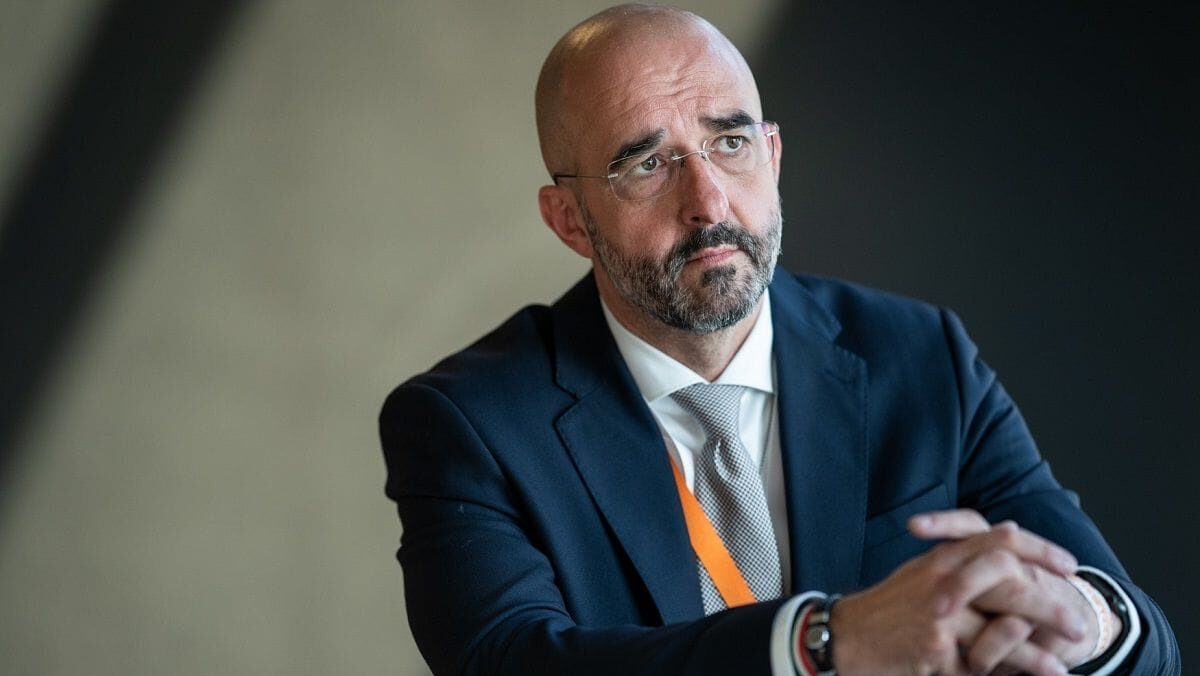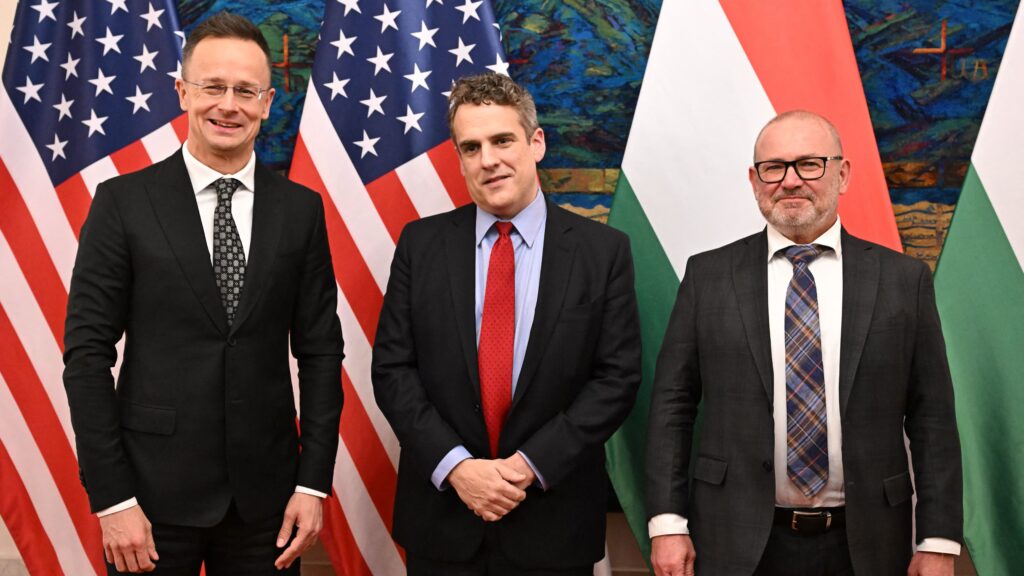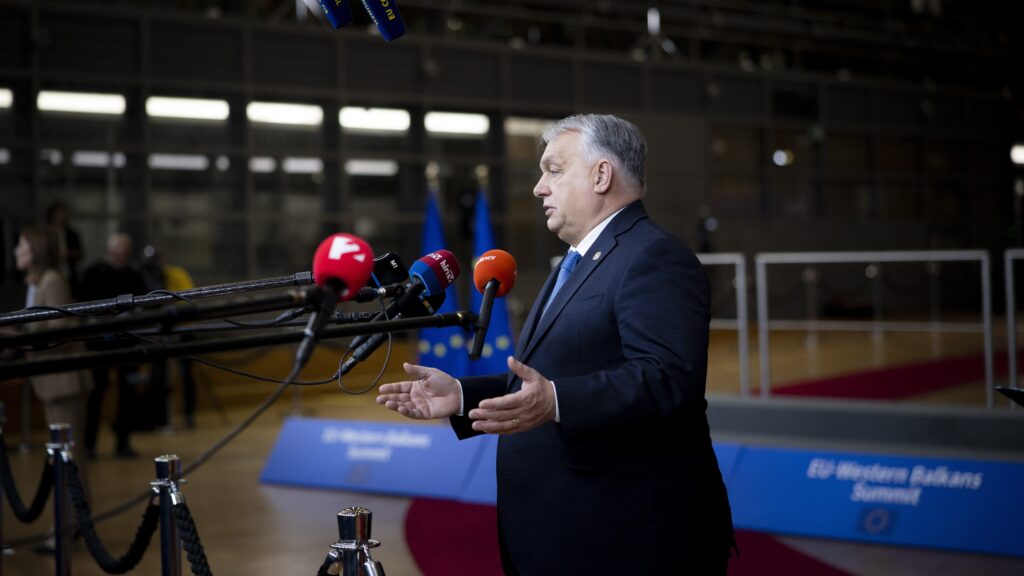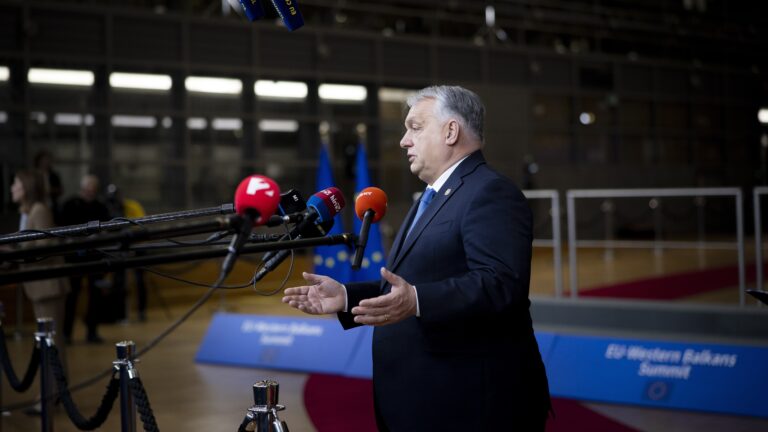In an interview with Eurasia magazine, Zoltán Kovács, Hungarian State Secretary for International Communications and Relations, discussed the key achievements of Hungary’s EU presidency over the past six months, the prospects for cooperation with Donald Trump, and the future of the EU’s competitiveness.
Kovács began by noting that Hungary assumed the presidency under challenging circumstances, with the new European Commission taking office only in December and the European Parliament still finding its footing after the elections. Despite these hurdles, Kovács emphasized that agreements on major issues were reached, including securing next year’s EU budget—a feat that was far from guaranteed.
He highlighted Hungary’s most significant achievement during its presidency: the adoption of a competitiveness pact following the European Political Community summit and the informal European Council meeting in Budapest. Kovács stressed that this pact lays the groundwork for substantive work and dialogue on enhancing the EU’s competitiveness moving forward.
‘Hungary’s most significant achievement during its presidency was the adoption of a competitiveness pact’
And what is Hungary’s recipe for restoring competitiveness? According to Zoltán Kovács, it is certainly not further centralization or the pursuit of a ‘United States of Europe’ concept. ‘We have long argued that maintaining connectivity and openness is not only in the interest of member states. For Europe, openness has always been a competitive advantage, underpinning its prosperity and global influence,’ he highlighted.
Kovács explained that competitiveness must also be fostered within Europe, as the continent, while small in size, is diverse and fragmented enough that its regions possess unique skills and talents that cannot be standardized. ‘Each region must be allowed to maximize its potential. Europe’s strength has historically been its policy based on consensus,’ he noted.
He cautioned against decisions that member states are unwilling or unable to implement, as such policies harm European competitiveness. For example, he highlighted the imposition of punitive tariffs on Chinese electric vehicles, arguing that this approach leads to a dead end. ‘This perception—a rigid decision-making mechanism, if you like—is what we need to move away from. The policy of isolation leads nowhere,’ Kovács stressed.
‘For Europe, openness has always been a competitive advantage, underpinning its prosperity and global influence’
Looking ahead, Kovács warned that Europe will soon face similar challenges with the United States, as the next US president is likely to pursue a strongly protectionist market policy. ‘Europe cannot emerge successfully from such battles—not Hungary, nor the continent as a whole,’ he explained.
Decisions, he argued, should be grounded in common sense rather than ideology, referencing the counterproductive measures of the European green transition, which often disadvantage farmers. ‘Practical, consensus-based policies are essential for ensuring Europe’s competitiveness and prosperity,’ he concluded.
Pragmatism, Not Ideology Needed
Zoltán Kovács emphasized that in relation to US President-elect Donald Trump, the foundation of engagement must be mutual respect—something largely absent in much of Western European politics. ‘If we are looking for points of contact between US and European politics, this alone would justify a relationship that accepts and respects each other’s political views, alongside good personal relations,’ he stated.
Kovács noted that the expected decisions from Washington will inevitably have a universal impact on Europe. He cautioned against expecting a privileged status, underlining the need for pragmatism in negotiating trade with the US ‘Europe must be sensible when negotiating trade with the US, as closing ranks is not in our interest,’ he stressed.
‘Hungary remains open to investment from all corners of the world’
When asked whether Donald Trump would respect Hungary’s views on China, Kovács expressed confidence that ideological pressure would not be an issue. ‘This, in itself, would be a great relief,’ he remarked.
Kovács reiterated that Hungary remains open to investment from all corners of the world. ‘We are open and aim to offer the best conditions,’ he said. He added that those who choose to invest, produce, or establish innovation bases in Hungary not only benefit the country but also contribute to the competitiveness and economic strength of Europe as a whole.
Related articles:







